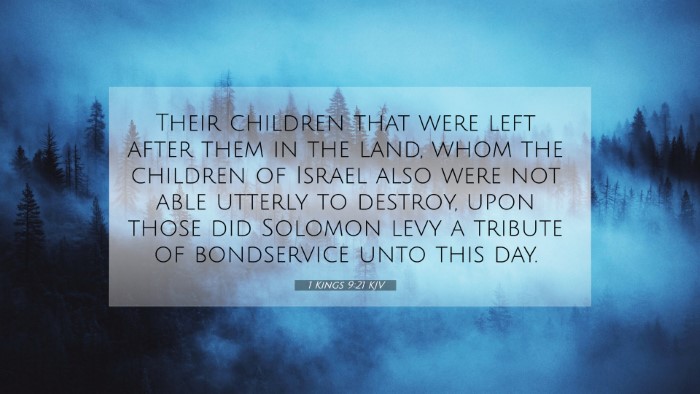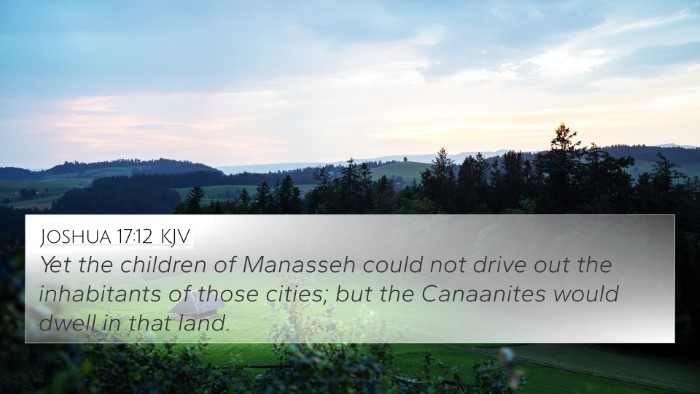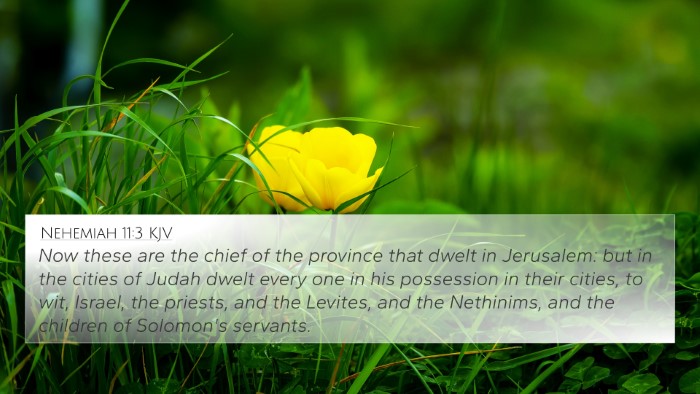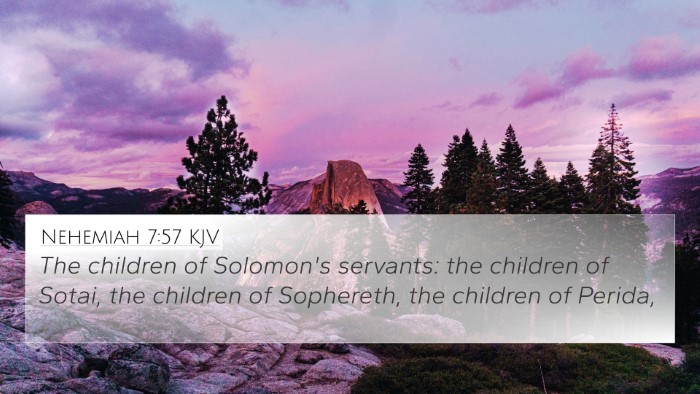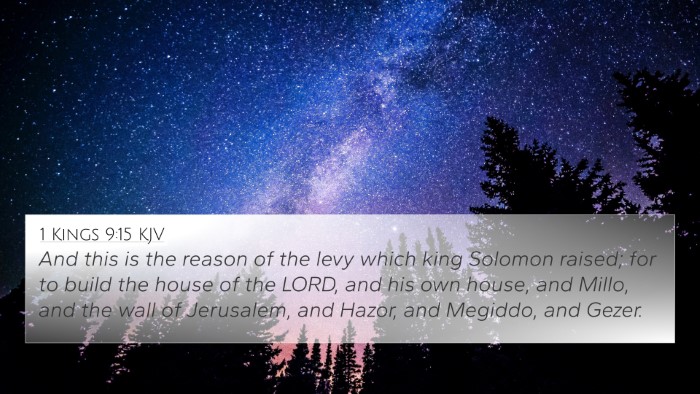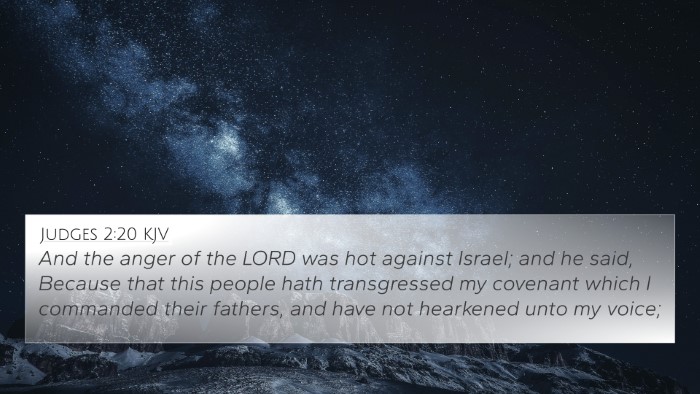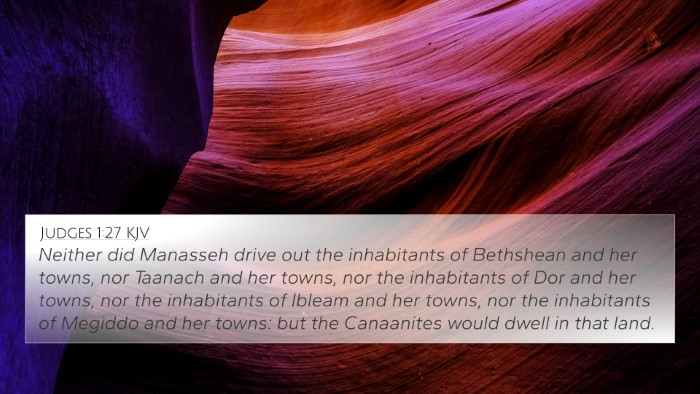Understanding 1 Kings 9:21
This passage from 1 Kings 9:21 refers to the population of the land of Canaan that were left after the conquests. It reveals insights into the relationship between the Israelites and the remaining inhabitants of the land, highlighting God’s providence and the unfolding of His plan for Israel. Various public domain commentaries offer a deeper insight into the verse's meaning.
Commentary Insights
-
Matthew Henry:
Henry emphasizes that the remnant of the Canaanites was in part left to test Israel's faithfulness to God. This continued existence of foreign nations in their midst represented both a danger and an opportunity for Israel to uphold their covenant with God.
-
Albert Barnes:
Barnes discusses that God’s original command was to drive out the Canaanites, yet their presence would serve as a reminder of the consequences of disobedience. Barnes elaborates on the responsibilities of Israel regarding these nations and the importance of remaining set apart as God’s chosen people.
-
Adam Clarke:
Clarke provides insights into the historical context, noting the political implications of these remaining peoples. He interprets this situation as both a challenge and an impetus for spiritual devotion among the Israelites, ensuring that they did not adopt the practices of surrounding nations.
Thematic Connections
The themes derived from 1 Kings 9:21 serve to connect various Biblical texts across both the Old and New Testaments. Below are several related cross-references that illustrate this verse’s significance:
- Deuteronomy 7:1-2: Discusses the command to destroy the Canaanite nations.
- Joshua 13:2-6: Mentions the remaining territories and the people to be driven out.
- Judges 2:1-3: Addresses the consequences of failing to drive out the inhabitants of the land.
- Exodus 23:32-33: Warns against making covenants with the people of the land.
- 2 Corinthians 6:14: Relates to the importance of not being unequally yoked with unbelievers.
- Romans 11:11-12: Describes the inclusion of the Gentiles and the continuation of God’s plan of salvation.
- 1 Peter 2:9: Refers to believers as a chosen people and a royal priesthood, echoing Israel's identity.
- Galatians 6:7-8: Highlights the principle of reaping what one sows, applicable to Israel's actions towards the Canaanites.
- Hebrews 12:1: Encourages believers to lay aside every weight and sin, paralleling the Israelites’ need to cast away influences.
- Matthew 28:19-20: The Great Commission reflects a similar engagement with the nations as seen in Israel's historical context.
Cross-Referencing Biblical Themes
The act of cross-referencing Bible verses allows for a richer understanding of Biblical narratives and principles. For example, in considering the warnings given in 1 Kings 9:21, one can explore how such themes manifest in later New Testament teachings, emphasizing the continuity of God's covenantal relationship with His people.
Tools for Bible Cross-Referencing
Utilizing tools such as a Bible concordance or a Bible cross-reference guide can greatly enhance one's study. These resources allow one to:
- Identify connections between Old and New Testament verses.
- Explore thematic Bible verse connections and parallels.
- Utilize a structured Bible cross-reference system for deeper study.
- Engage in cross-referencing Bible study methods for sermon preparation.
Conclusion
In summary, 1 Kings 9:21 serves as a crucial reminder of the historical and spiritual dynamics at play during the time of Israel’s settlement in Canaan. By understanding its context and utilizing cross-references, individuals can gain better insight into the ongoing narrative of Scripture and its application in their lives today. This verse invites readers to consider not only its initial implications but also its relevance in the larger story of the Bible, encouraging a deeper engagement with God’s Word.
FAQs
- What verses are related to 1 Kings 9:21? The verses listed in the thematic connections provide insight into the underlying themes.
- How do 1 Kings 9:21 and other verses connect? They share themes of obedience, relationship with God, and the consequences of disobedience.


